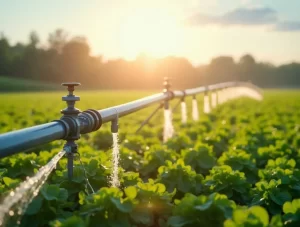Is PVC Pipe Safe for Drinking Water? Exploring Safety Standards and Alternatives
Can You Drink Water Out of PVC Pipe?
Risks of Drinking Water from PVC Pipes
Drinking water from PVC pipes is generally considered safe when the pipes are installed and maintained correctly. PVC pipes used for drinking water are manufactured according to standards set by regulatory bodies like the American National Standards Institute (ANSI) and the National Sanitation Foundation (NSF). However, the risks of consuming water from PVC pipes arise mainly from improper installation, poor maintenance, or pipes that have not been certified for potable water use.
Potential Risks:
- Chemical Leaching: Some low-grade PVC pipes may contain harmful chemicals or additives that could leach into the water, especially when exposed to high temperatures or harsh environmental conditions.
- Ageing Pipes: Over time, PVC pipes can degrade, potentially leaching plasticizers and other substances into the water supply.
Safety Standards for PVC Pipes in Drinking Water
Not all PVC pipes are designed for drinking water. Pipes used for potable water must meet stringent safety standards, such as NSF 61 certification, which ensures that the materials used do not contaminate drinking water. Always choose NSF-certified PVC pipes to ensure that the water remains safe for consumption.
What is the Safest Pipe for Drinking Water?
Best Pipe Materials for Potable Water Systems
The safest materials for drinking water systems are those that are non-toxic and do not leach harmful chemicals. The most commonly used materials are copper, PEX (cross-linked polyethylene), and CPVC (chlorinated polyvinyl chloride).
While PVC pipes are safe when properly installed and certified for potable water, PEX is increasingly becoming a preferred option due to its flexibility and ease of installation. Copper is another safe option, though it is more expensive compared to PVC and PEX.
Comparison of Safe Pipe Materials for Drinking Water
- Copper: Safe, long-lasting, but expensive.
- PEX: Flexible, cost-effective, and resistant to corrosion.
- CPVC: Chlorinated version of PVC, resistant to high temperatures and commonly used for hot water lines.
Is PVC Plastic Safe for Drinking Water?
Health Concerns with PVC Plastic in Water Systems
PVC plastic is made from petroleum-based chemicals, leading some to question whether it’s safe for drinking water. In theory, PVC pipes should not leach harmful chemicals into the water under normal conditions. However, issues such as improper installation, substandard manufacturing processes, or prolonged exposure to extreme heat can increase the likelihood of chemical leaching.
Regulations and Standards for PVC in Drinking Water
To ensure PVC is safe for potable water, manufacturers must comply with strict NSF 61 and ANSI standards. These regulations ensure that PVC pipes used in drinking water systems meet high-quality standards and are free from harmful contaminants.
What Kind of PVC Pipe for Drinking Water?
Types of PVC Pipes Suitable for Drinking Water
Not all PVC pipes are created equal. When selecting pipes for drinking water, it’s crucial to choose Schedule 40 PVC pipes that are designed and certified for potable water. Schedule 40 PVC pipes are suitable for cold water applications and are most commonly used in residential plumbing systems.
Choosing the Right Grade of PVC Pipe for Water Supply
To avoid health risks, always opt for NSF-certified PVC pipes that are designed for potable water systems. This ensures that the pipes are made from materials that won’t contaminate the water supply.
What Kind of PVC Pipe for Drinking Water?
Types of PVC Pipes Suitable for Drinking Water
Not all PVC pipes are created equal. When selecting pipes for drinking water, it’s crucial to choose Schedule 40 PVC pipes that are designed and certified for potable water. Schedule 40 PVC pipes are suitable for cold water applications and are most commonly used in residential plumbing systems.
For hot water applications, CPVC pipes are preferred as they are designed to withstand higher temperatures. Schedule 40 PVC is typically used for outdoor irrigation systems, sewer lines, and non-potable water applications.
Choosing the Right Grade of PVC Pipe for Water Supply
To avoid health risks, always opt for NSF-certified PVC pipes that are designed for potable water systems. This ensures that the pipes are made from materials that won’t contaminate the water supply.
Which Type of Pipe Cannot Be Used for Drinking Water?
Unsafe Pipe Materials for Potable Water
While PVC is generally considered safe for drinking water when installed correctly, certain pipe materials should be avoided for potable water applications. These include:
- Galvanized Steel: Over time, galvanized pipes corrode, leading to rust and contaminants in the water.
- Lead Pipes: Lead is highly toxic and can cause serious health issues, including developmental delays in children.
- Asbestos Cement: Often found in older plumbing systems, asbestos cement pipes can release fibers into the water, leading to serious health risks.
Health Risks of Using Certain Pipes in Drinking Water Systems
Using materials like lead or asbestos in drinking water systems can expose individuals to significant health risks, including heavy metal poisoning and cancer. It’s important to regularly inspect plumbing systems and replace old pipes with safe, modern materials like PVC or PEX.
Is PVC OK for Drinking Water?
Safety and Suitability of PVC for Potable Water
When properly installed and maintained, PVC pipes are safe for drinking water. It is essential to use NSF-certified PVC pipes to avoid any potential contamination and ensure the pipes meet health and safety standards.
Health Considerations and Certifications for PVC in Water Systems
Always check for the NSF 61 certification when selecting PVC pipes for drinking water. This ensures that the pipes do not contain harmful chemicals that could leach into the water.
What Type of Pipe is Used for Main Water Lines in India?
Pipes Used for Main Water Supply in India
For main water lines in India, DI (Ductile Iron) pipes, PVC pipes, and UPVC pipes are commonly used. DI pipes are known for their strength, while PVC pipes are favored for their affordability and resistance to corrosion.
PVC and UPVC pipes are preferred for their ability to withstand environmental factors like high humidity and temperature fluctuations, making them ideal for water distribution systems.
For hot water systems, PEX, copper, or CPVC pipes are commonly used, as they can withstand higher temperatures without compromising the integrity of the system.
Manufacturing Process of CPVC Piping Systems
Conclusion
In conclusion, PVC pipes are generally safe for drinking water when used correctly, installed properly, and certified for potable water systems. While PVC offers significant advantages in terms of cost, durability, and ease of installation, it’s crucial to ensure that you use NSF-certified pipes that meet the safety standards for potable water. When choosing materials for your plumbing system, always consider the long-term safety, environmental factors, and regulatory requirements to ensure that the water you drink remains clean and safe.
Frequently asked questions
Here are answers to some frequently asked questions about Fitwell's plumbing services.
Yes, PVC pipes are generally safe for drinking water when they meet the necessary NSF 61 certification standards. Regular inspections and proper installation ensure long-term safety, and they are commonly used in residential plumbing systems for cold water applications.
If PVC pipes are of low quality or improperly installed, they may leach harmful chemicals into the water. However, NSF-certified pipes are designed to prevent such issues and ensure that drinking water remains safe.
The benefits of using PVC pipes for drinking water systems include their cost-effectiveness, durability, and resistance to corrosion. They are lightweight and easy to install, making them a popular choice for plumbing systems.
To ensure PVC pipes are safe for drinking water, look for pipes that are NSF 61 certified and have been tested to meet safety standards. Also, ensure proper installation and maintenance by a professional plumber.
Yes, PVC pipes are generally safe for drinking water when they meet the necessary NSF 61 certification standards. Regular inspections and proper installation ensure long-term safety, and they are commonly used in residential plumbing systems for cold water applications.
Stay on the forefront of industry trends by checking out our latest content
Stay ahead with our latest content, designed to keep you informed on the newest industry trends and insights. Discover valuable updates that help you lead in your field.

Top Innovations in Agricultural Pipe Fittings for Water Savings [2025]
Introduction to Agricultural Pipe Fittings and Water Sustainability Agricultural pipe fittings play a pivotal role in building efficient irrigation systems, crucial for modern farming practices. By exploring the versatility of

Expeart Tips from MDPE Pipe Fittings Manufacturers to Avoid Failures
Expeart Tips from MDPE Pipe Fittings Manufacturers to Avoid Failures Understanding MDPE Pipe Fittings: An Overview MDPE (Medium Density Polyethylene) fittings, used extensively in gas and water systems, offer strong,

UPVC vs CPVC Pipe Fittings: Technical Specs and Applications
UPVC vs CPVC Pipe Fittings: Technical Specs and Applications Introduction to UPVC Pipe Fittings in Pressure Systems UPVC pipes and fittings are essential components in modern plumbing and industrial systems,
Request a Free Consultation
Get personalized plumbing solutions with a free consultation from Fitwell.

